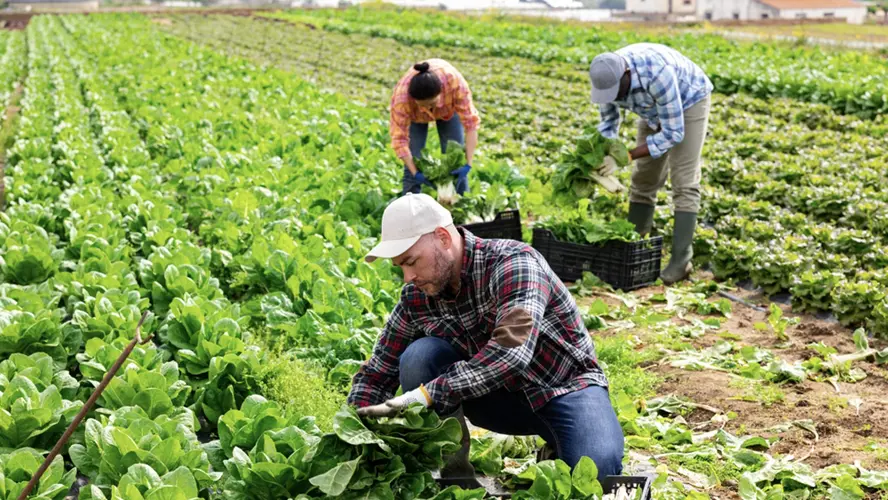Georgia’s Unique Workers’ Comp Coverage for Agricultural Workers
Understanding Agricultural Workers’ Compensation
Workers’ compensation is a crucial safety net that provides financial support and medical benefits to employees who suffer work-related injuries or illnesses. While workers’ compensation is vital for all industries, the coverage options and regulations for agricultural workers in Georgia possess some unique characteristics that demand close attention.
Eligibility and Coverage for Agricultural Workers
To comprehend the intricacies of agricultural workers’ compensation, it is essential to first define who falls under this category. Agricultural workers include individuals engaged in various types of farming, cultivation, and related activities. However, certain criteria, such as the scope and extent of involvement in agricultural work, play a role in determining eligibility for coverage.
Mandatory Coverage Requirements
Georgia’s workers’ compensation laws mandate coverage for employers with a specific minimum number of employees. However, the rules surrounding agricultural employers may vary due to exceptions and exemptions specific to this sector.
Specific Regulations for Agricultural Workers’ Compensation
Reporting Injuries and Filing Claims
In the event of an injury, agricultural workers must adhere to specific timelines and procedures for reporting their injuries to their employers. Documenting the extent and nature of the injury accurately is crucial for the success of a workers’ compensation claim.
Medical Benefits and Treatment
Agricultural workers are entitled to receive necessary medical care and treatment for their work-related injuries. The workers’ compensation system ensures reimbursement for medical expenses incurred in treating these injuries.
Wage Replacement Benefits for Agricultural Workers
Temporary Total Disability Benefits
If an agricultural worker is temporarily unable to work due to their injury, they may be eligible for temporary total disability benefits. These benefits are calculated based on the worker’s average weekly wage and have a specified duration.
Permanent Partial Disability Benefits
In cases where an agricultural worker suffers a permanent impairment due to a work-related injury, they may be eligible for permanent partial disability benefits. These benefits are determined based on specific criteria and provide compensation for the permanent disability suffered.

Vocational Rehabilitation Services for Agricultural Workers
Vocational Rehabilitation Overview
Vocational rehabilitation services are designed to assist injured agricultural workers in returning to work. These services can include vocational training, job placement assistance, and coordination with employers to accommodate limitations.
Availability and Considerations for Agricultural Workers
Specialized vocational rehabilitation services and resources tailored to the unique needs of agricultural workers are available. These programs aim to provide guidance and support to injured workers, helping them navigate the challenges of returning to work within the agricultural industry.
Appeals and Dispute Resolution
The Importance of Appeals Process
In cases of disputes or disagreements over workers’ compensation claims, an effective appeals process is essential to ensure fair resolutions. Agricultural workers have the right to seek a review of their claims if they believe their benefits are unjustly denied or inadequate.
Administrative Processes and Options
The State Board of Workers’ Compensation handles the appeals process for agricultural workers’ compensation disputes. This may involve mediation, hearings, or alternative dispute resolution methods to reach a fair resolution.
Compliance and Risk Management for Agricultural Employers
Compliance Requirements and Penalties
Agricultural employers in Georgia have certain obligations to meet regarding workers’ compensation. These include maintaining accurate records, fulfilling reporting requirements, and providing coverage to eligible employees. Failure to comply with these obligations may result in penalties and legal consequences.
Implementing Effective Safety and Prevention Measures
To mitigate the risk of workplace injuries, agricultural employers must implement robust risk management strategies. This includes providing mandatory safety training, maintaining equipment, and creating a culture of safety awareness among workers.
Recent Changes and Future Outlook
Updates to Georgia’s Workers’ Compensation System
Georgia’s workers’ compensation laws may undergo changes over time, impacting agricultural workers’ coverage and benefits. Staying informed about legislative developments is crucial to understanding the rights and protections afforded to agricultural workers.
Ensuring Adequate Protection for Agricultural Workers
Advocacy groups play a vital role in advocating for the rights of agricultural workers and advocating for improved coverage and benefits. Continued efforts are necessary to ensure that agricultural workers receive the appropriate level of protection through workers’ compensation.
In the complex realm of workers’ compensation regulations, Georgia’s unique coverage options for agricultural workers demand careful consideration. Familiarizing oneself with the specificities of eligibility, coverage, and dispute resolution is essential for both workers and employers to navigate the system successfully. By upholding compliance, promoting safety, and keeping an eye on legislative changes, the agricultural industry can continue to provide adequate protection for its workers.

Leave a Reply
Want to join the discussion?Feel free to contribute!